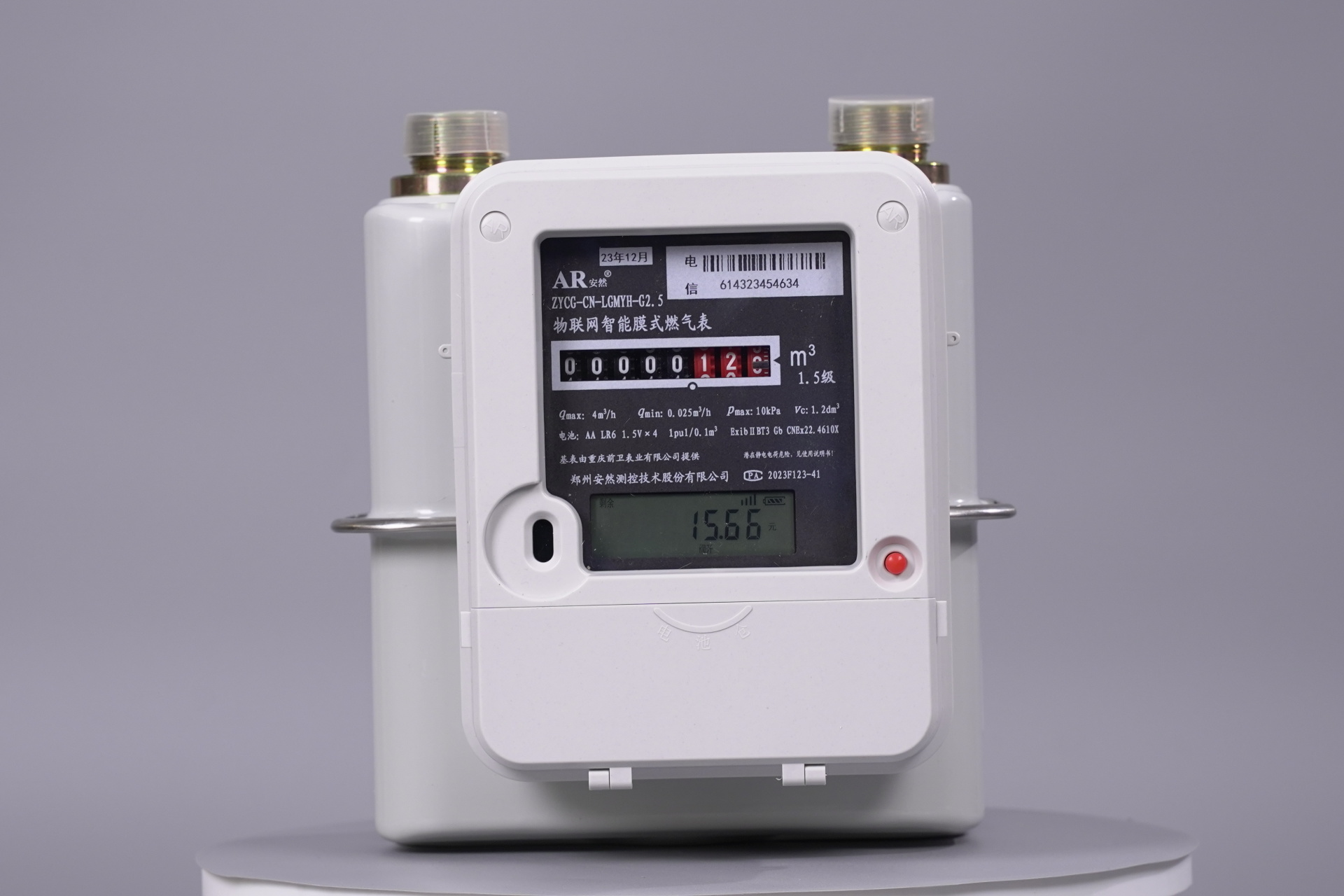Everything You Need to Know About Smart Gas Meters
Publish Time:
2024-10-12

As global demand for energy efficiency and resource management rises, smart gas meters have become an essential part of modern utilities. These devices help both consumers and gas providers monitor and optimize gas usage. In this article, we'll explore the types of smart gas meters, their features, advantages, and the precautions users should take when using them.
Types of Smart Gas Meters
-
Diaphragm Gas Meters: Diaphragm meters are the most common type of gas meter used in residential applications. They measure gas consumption by counting the number of times gas inflates and deflates flexible diaphragms inside the meter. While not a "smart" meter in its basic form, when fitted with a digital interface and communication module, it becomes a smart diaphragm meter that can transmit real-time usage data.
-
Turbine Gas Meters: Used primarily in commercial and industrial applications, turbine gas meters operate by measuring the speed at which gas passes through a rotor inside the meter. A smart turbine meter can report real-time data on gas flow and consumption.
-
Ultrasonic Gas Meters: Ultrasonic gas meters use sound waves to measure the flow rate of gas, offering a more precise and maintenance-free solution compared to mechanical meters. These meters are ideal for smart applications because they can instantly report data and are highly durable.
-
Rotary Gas Meters: These meters use two rotating pistons to measure gas flow, typically found in industrial settings. When integrated with smart communication technology, rotary meters provide accurate, real-time information on gas usage.
Features of Smart Gas Meters
-
Real-time Data Transmission: Smart gas meters are equipped with communication modules (e.g., wireless, cellular, or IoT-based technology) that enable them to transmit gas usage data in real-time to the utility company and the user.
-
Remote Monitoring and Control: Users can monitor their gas consumption through mobile apps or web portals, giving them greater control over their energy use. Utility providers can also remotely control the meter for purposes like starting or stopping the gas supply.
-
Leak Detection and Alerts: Smart meters can detect abnormal gas consumption patterns, indicating a potential gas leak. In such cases, they can send alerts to both users and the utility provider, ensuring safety and quick responses.
-
Prepaid and Postpaid Options: Many smart gas meters come with flexible billing options, allowing users to pay as they go (prepaid) or based on consumption after use (postpaid).
-
Two-way Communication Smart meters not only send consumption data but can also receive updates from utility providers, such as software upgrades or pricing changes.
Advantages of Smart Gas Meters
-
Improved Accuracy: Smart gas meters eliminate the need for manual readings, reducing the risk of human error. Their automated data collection provides more accurate billing and usage tracking.
-
Energy Efficiency: By monitoring gas consumption in real-time, users are more likely to identify areas of high usage and adopt measures to save energy, reducing overall consumption and costs.
-
Enhanced Safety: With built-in leak detection systems, smart gas meters offer an additional layer of safety, alerting users and utility providers of potential hazards before they become dangerous.
-
Convenience for Users: Smart gas meters provide the convenience of monitoring gas consumption remotely through apps, allowing users to keep track of their energy use without needing to manually check the meter.
-
Lower Operational Costs for Utility Providers: Smart meters reduce the need for manual meter readings and field visits, lowering operational costs for utility companies while improving the efficiency of their services.
-
Environmental Benefits: By encouraging more efficient gas consumption, smart meters contribute to reduced energy waste, supporting environmental sustainability efforts.
Precautions When Using Smart Gas Meters
-
Proper Installation: A smart gas meter should be installed by certified professionals to ensure that it operates correctly and meets all safety standards. Incorrect installation can lead to inaccurate readings or safety hazards.
-
Regular Maintenance: Although smart meters are generally low-maintenance, they should be inspected periodically to ensure they are functioning properly, especially in environments prone to extreme weather conditions or mechanical stress.
-
Cybersecurity Measures: Since smart gas meters transmit data wirelessly, it is essential that utility companies and users adopt strong cybersecurity practices to protect sensitive information and prevent hacking or tampering with the device.
-
Monitoring for Faults: Users should regularly monitor their gas consumption to ensure the smart meter is working correctly. Any irregularities or sudden changes in consumption should be reported to the utility company.
-
Battery Life: Many smart meters are powered by batteries, so it's essential to monitor battery life. Some meters send alerts when the battery is running low, but users should be aware of potential power issues that could affect meter functionality.
-
Compliance with Local Regulations: Smart gas meters must comply with local regulatory standards for safety, data transmission, and privacy. Users and utility providers should ensure that all regulatory requirements are met when installing and operating smart meters.
Conclusion
Smart gas meters offer numerous benefits, including enhanced accuracy, safety, and convenience, making them a crucial part of modern gas management systems. With a range of types available to suit different needs, these devices help both consumers and utility providers improve energy efficiency and reduce operational costs. However, proper installation, maintenance, and attention to cybersecurity are essential to ensuring safe and effective use of smart gas meters.
Related Blog







